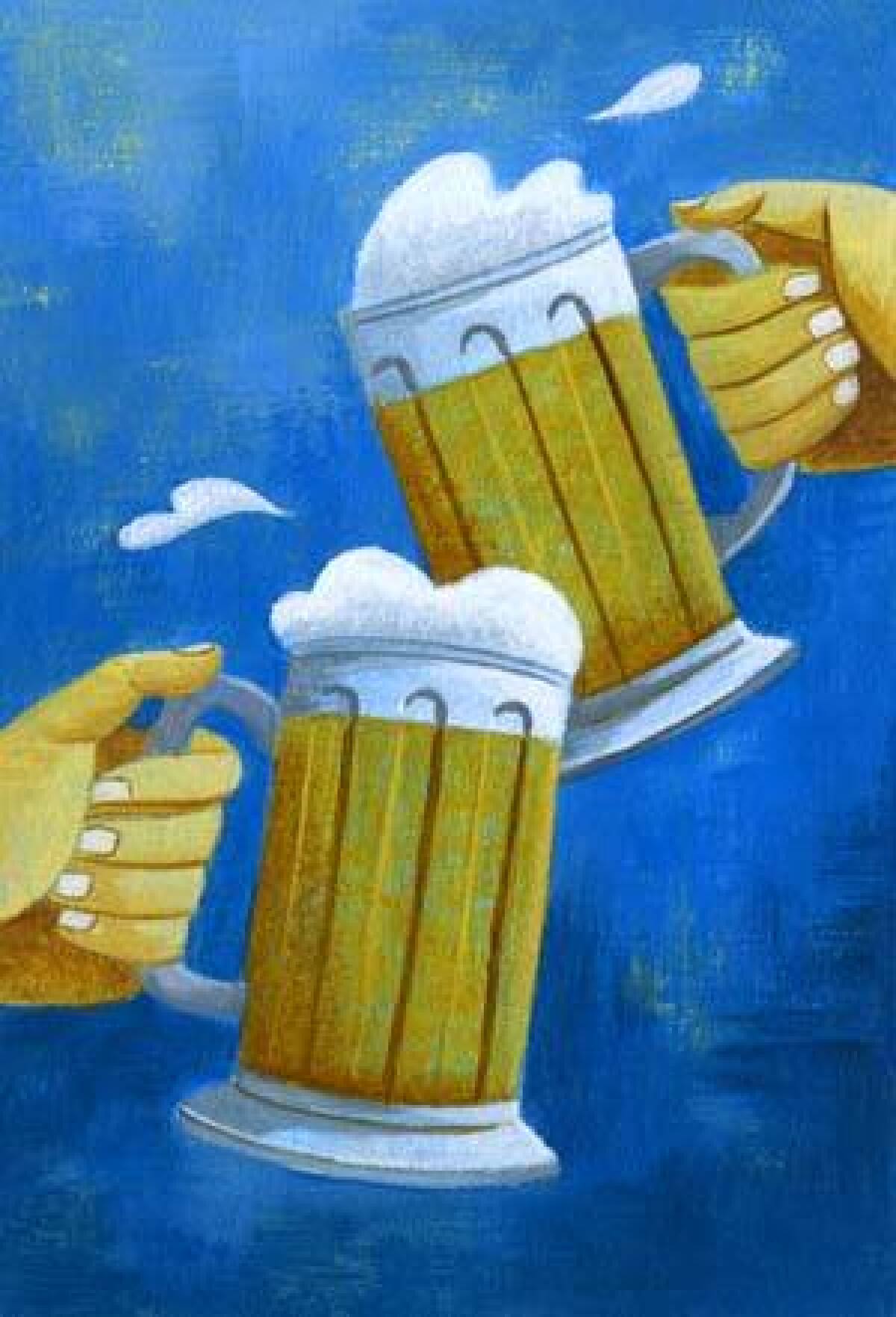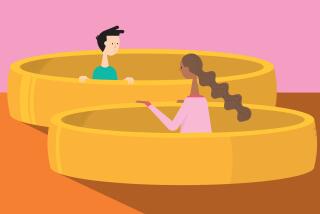Here’s to good buddies, good health

- Share via
WHILE no man is an island, too many are like lonely peninsulas jutting off from the rest of society. In recent decades, close friendships among Americans have dwindled -- especially among certain groups of men.
And, experts say, there are consequences to that. Social isolation -- a lack of close friends, tight-knit family or ties to groups -- takes a toll on men’s physical and mental health.
“Friendship is a buffer,” says Dr. Bruce Rabin, medical director of the Healthy Lifestyle Program at the University of Pittsburgh Medical Center. Social ties seem to protect against various ills, including depression, high blood pressure, clogged arteries, infections and even death.
But social networks are shrinking. On average, Americans can name only about two people with whom they can discuss matters of personal importance, according to a survey of nearly 1,500 adults published in June in the journal American Sociological Review. Less than one of these is a friend outside the family. One in four people surveyed said they had no confidant at all.
That is a downshift from 1985, when people typically counted three such relationships, including at least one friend, according to the study, which was led by sociologist Miller McPherson at Duke University. Back then, only one person in 10 had no close relationships.
Two groups of men -- high-school educated whites in their 20s and 30s, and blacks aged 60 and older -- experienced especially big drops in the size of their inner circles, the study found.
Social isolation harms health in several ways, research indicates. First, it encourages bad habits, such as inactivity and unhealthful eating, says research psychologist John Cacioppo of the University of Chicago. If you’re isolated, he says, “you’re less likely to take care of yourself, and other people are less likely to badger you to take care of yourself.”
But harmful behaviors account for only about a quarter of the deaths linked to social isolation, says Lisa Berkman, an epidemiologist at the Harvard School of Public Health who reported the link between isolation and mortality risk almost three decades ago, in a study of thousands of adults in Alameda County, Calif. Isolation “kind of accelerates the way people age,” she says. It elevates blood levels of stress hormones, which can cause inflammation in the body.
Those changes harm the cardiovascular system, among other organs, which might explain one finding that’s cropped up repeatedly in studies -- that after a heart attack, people who lack emotional support are more likely to die prematurely.
Isolation isn’t only a problem for those who are already ill or old, Berkman says: She found the same thing in another, recent study on more than 12,000 men in their 40s and 50s. The study, published in the American Journal of Epidemiology in 2004, had French employees of a gas and electric company fill out annual questionnaires. It then tracked deaths in the group for 10 years.
The finding: Those who felt least socially integrated were about three times as likely to die within those 10 years as those who felt most integrated. Cancers, accidents and suicides all contributed to the difference.
Immunity may suffer as well. Studies with college students have shown that being lonely or having a small social circle weakens the normal immune response to a flu vaccine. On the flip side, having many types of strong social ties -- with friends, co-workers and a spouse, for instance -- makes both young and middle-age adults less susceptible to cold infections.
“When you perceive that there are other people who can help you, you do better in the face of stress than when you don’t have those people in your social network,” says psychologist Sheldon Cohen of Carnegie Mellon University, the author of these immunity studies.
Adolescence and young adulthood is typically when people count themselves as having the most friends. Social networks can later grow smaller, as parents, for example, become absorbed in raising families.
But that in itself doesn’t destine people to become socially isolated. “You don’t need a lot of different kinds of relationships o be protected” against negative health consequences, Cohen says. “People who have one really good provider of social support do well.
“This is why marriage is such a big deal for men,” he says. “A good marriage, where you’re getting support from your spouse, seems to be enough.”
To stay socially connected:
* Foster relationships wherever you can: Many types of contact can help, Berkman has found. “It doesn’t really matter if the ties are with friends and relatives or with religious and voluntary associations,” she says.
* Meet people while volunteering or pursuing an interest. “ Usher at a local theater,” Rabin suggests. “If you enjoy gardening, become a docent at your local botanical garden. If you enjoy art, be a docent on the weekend at the museum.”
* Lend a hand to those in need. “Do community service,” Cacioppo says.
* When you get lonely, resist the common temptation to become egocentric or hostile toward others, Cacioppo says.
* Don’t wait till you’re old or sick to make connections. Develop friends throughout life.






